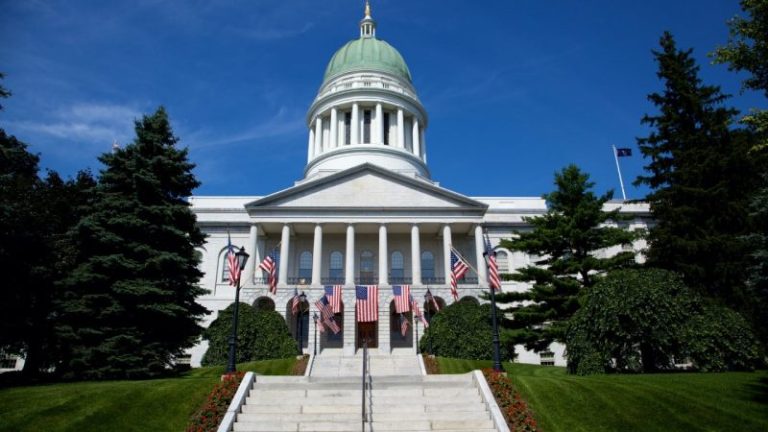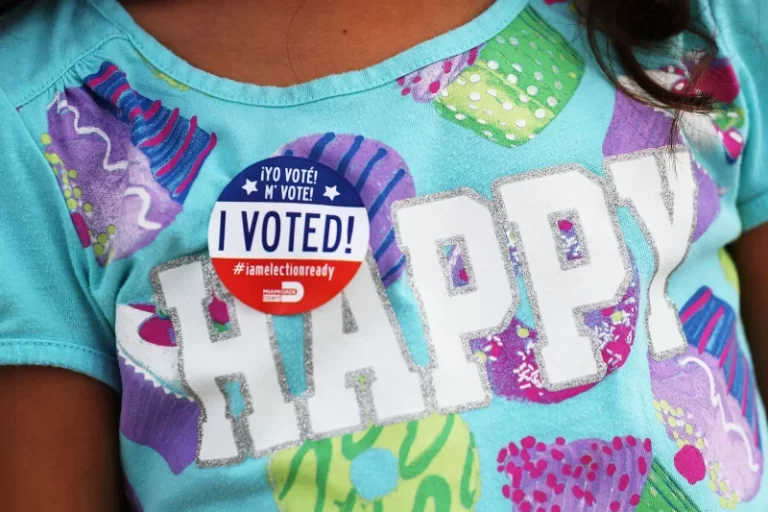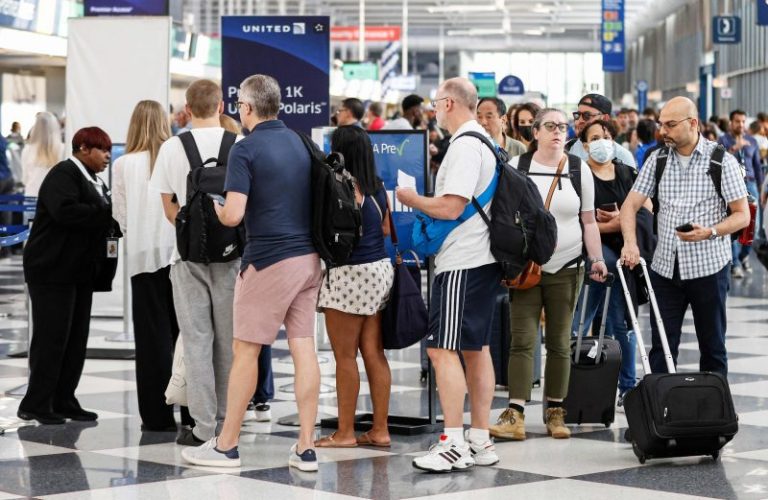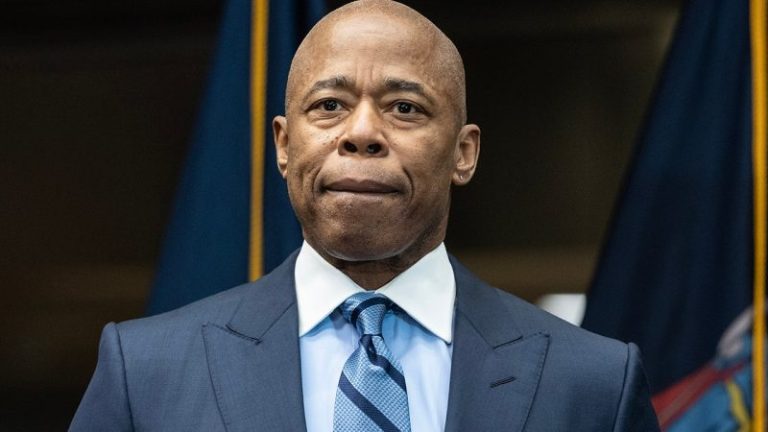The Democrat-led movement to lower the legal voting age to 16 — or in some cases even younger — is gaining momentum as teenagers and other activists seek to score local victories while winning the support of some voices in the media.
The so-called ‘Vote 16’ campaign recently notched a victory in Vermont, where the Democrat-controlled state legislature last month overrode Republican Gov. Phil Scott’s veto of a measure allowing 16-year-olds to vote in municipal elections and hold the highest elected offices.
Specifically, 16- and 17-year-olds can now vote in the southern Vermont town of Brattleboro. Young voters will be able not only to vote in local elections but also to serve on the community’s selectboard if elected. They can also be representatives to the town’s annual town meeting, where local issues are decided.
Rep. Emilie Kornheiser, a Democrat from Brattleboro, said last week that getting more young people to vote will help keep them politically involved.
‘Vermont is an aging state and we’re a state that really prides ourself on democracy and participation,’ said Kornheiser, according to the Associated Press. ‘I think the more we can do to bring youth into that process so that they learn the skills and practice the skills of participation and politics with sort of a lower case ‘p’ the stronger our communities will be and the more I think folks will feel tied to their communities.’
Scott had vetoed the bill in late May, arguing in part that it would worsen inconsistencies in Vermont law on the age of adulthood
‘I believe it is important to encourage young Vermonters to have an interest in issues affecting their schools, their communities, their state, and their country,’ he wrote in a letter to lawmakers. ‘However, I do not support lowering the voting age in Brattleboro, nor lowering the age to run for Town office and sign contracts on behalf of taxpayers.’
In Missouri, meanwhile, a statewide group is lobbying to lower the voting age for local and school board elections to 16.
DJ Yearwood, the teenager leading the effort, recently launched the Vote16MO campaign, which advocates for Missouri lowering the voting age to 16. Vote16MO is working with Missouri lawmakers to introduce legislation in the next session. According to Yearwood, the bill has both a Republican and a Democratic sponsor, but he said he couldn’t reveal them yet. He hopes to see a measure to lower the voting age measure on the ballot as a constitutional amendment in next year’s elections.
‘We’re asking 16-year-olds to take this government class and to do this one small unit on local government, and then save it for two years and apply it to their lives,’ Yearwood told St. Louis Public Radio in a recent interview. ‘We could be doing it right now, while it’s intimate and impactful to them the most.’
Yearwood also thinks lowering the voting age would help with teenagers’ transition to adulthood and teach young people to approach politics without the influence of political parties.
‘In the current system, 18-year-olds are launched into the political process at all levels, all party politics,’ he said. ‘They have no chance to really digest what governance is [without] party politics.’
Yearwood argues that lowering the voting age would strengthen civic education and engagement and that not letting 16- and 17-year-olds vote amounts to ‘taxation without representation’ since teens can also work and pay taxes.
However, Vote16MO’s campaign doesn’t have the support of Missouri’s top election official, Secretary of State Jay Ashcroft.
‘What if a 14-year-old is working on the family farm earning money? Are we saying that they should be voting?’ he asked St. Louis Public Radio. ‘I think it’s reasonable to say we want you to be a little bit older, we want you to have a little bit more of the level of responsibility that other people have.’
Beyond Missouri, the push to allow underage children to vote has prompted outcry and legal challenges from election experts opposed to the effort.
‘It is an extremely unwise push to allow 16- and 17-year-olds to vote,’ Hans von Spakovsky of the Heritage Foundation told Fox News Digital. ‘We don’t consider them to have the judgment and maturity to make important decisions, which is why they are not legally adults and can’t sign contracts, lease an apartment, buy a car, join the military, drink alcohol, or do the many other things only adults can legally do. Why would we think they have the maturity to make decisions in the political process if they can’t make any of these other decisions?’
Critics of lowering the voting age often cite the fact that a teen’s brain isn’t fully developed, not reaching full development until about the age of 25. According to one oft-cited study on this subject from 2006, ‘research in neuroscience suggests that the brain, specifically the prefrontal cortex, is still undergoing major reconstruction and development during the teenage years.’ The study noted that the prefrontal cortex is what ‘enables us to weigh dilemmas, balance trade-offs, and, in short, make reasonable decisions in politics.’
Amid the push to lower the voting age, GOP presidential candidate Vivek Ramaswamy recently proposed amending the Constitution to raise the voting age from 18 to 25. However, the other side of the momentum seems to be gaining momentum.
Vermont and Missouri are hardly alone in undergoing campaigns to lower the voting age. In New Mexico, for example, two Democrats introduced a bill earlier this year to allow 16- and 17-year-olds to register as voters starting in 2024.
In Oregon, meanwhile, 15-year-old high school sophomore Devon Lawson-McCourt recently ‘secured a promise’ from Democratic state Rep. Rob Nosse to propose an amendment to the state constitution giving 16- and 17-year-olds the right to vote, according to the Oregon Capital Chronicle.
Coming back to the east coast, the Boston City Council late last year approved a petition allowing 16- and 17-year-old residents to vote in municipal elections. The Massachusetts town of Southborough in March similarly approved a petition lowering the voting age for residents to 17. Both measures must pass the state legislature to be implemented.
Just last month, the Massachusetts Legislature’s Joint Committee on Election Laws heard testimony from advocates and lawmakers speaking in favor of different bills to lower and even outright eliminate the voting age for some elections.
‘Only with suffrage are social groups able to hold their governments truly accountable to their needs,’ John Wall, a professor of childhood studies at Rutgers University, told the committee. ‘It is incorrect and discriminatory to apply to children the need for voting capacities when we don’t apply such capacities to adults. All adults have the right to vote, even if they have severe dementia, cognitive disabilities, illiteracy, or just plain stupidity.’
Two cities in California — Oakland and Berkley — and five others in Maryland — Takoma Park, Hyattsville, Greenbelt, Riverdale Park, and Mount Rainer — already permit 16- and 17-year-olds to vote in municipal elections. (Alameda County, where Oakland and Berkeley are located, has yet to implement the measure in either city.)
Another area of Maryland pushing to lower the voting age is Howard County, where the Board of Education is composed of eight members, including one reserved for a student elected by their peers in grades six through 11. Sixth graders are typically 11 or 12 years old.
Across the Potomac, a Virginia Democrat submitted a bill last year to be introduced in the 2023 General Assembly for a constitutional amendment to lower the voting age for local elections to 16.
‘If we can get 16- and 17-year-old’s the ability to vote in at least local elections, it will empower them to think about their civil responsibility,’ said Delegate Sam Rasoul, who argued young people don’t have a sufficient say despite being affected by important decisions.
In Culver City, Calif., meanwhile, a ballot initiative to allow residents as young as 16 to vote in city and school board elections fell short in last year’s midterm elections. However, proponents of the Vote 16 movement were encouraged.
‘The movement continues to grow in interest and strength,’ Andrew Wilkes of the group Generation Citizen told the Los Angeles Times. ‘This lays the groundwork for the baton to be passed to rising high school students.’
At the federal level, Rep. Grace Meng, D-N.Y., introduced legislation in January to amend the Constitution to make 16 the national minimum voting age.
‘Over the past few years, we have seen the influence young people in our nation have on trends, political movements, and elections,’ Meng said at the time. ‘They continue to advocate for many crucial issues for which they are deeply passionate about. It is time to give them a voice in our democracy and reward their passion so that their voices are heard at the ballot box. 16- and 17-year-olds are legally permitted to work, drive, and they also pay federal income taxes. They are contributing members of our society and I believe it is right and fair to allow them to vote in our elections.’
Critics contend such arguments disguise the chief motive of those in power pushing this effort: gaining more votes.
‘Why would officials suddenly consider that minors have the ability and judgment to make important political decisions when they don’t trust them to make any of these other decisions [such as signing a contract or serving on a jury]?’ von Spakovksy asked Just the News last year. ‘Nothing other than politics and the belief it will somehow help them get elected. This is a crass motive and a betrayal of all of their other constituents and particularly voters whose votes will be diluted by children.’
A near-record 27% of voters aged 18 to 29 cast ballots in last year’s midterm elections, the second-highest turnout in three decades, according to an analysis of exit poll data by Tufts University’s Center for Information & Research on Civic Learning and Engagement. Across the country, these young voters overwhelmingly supported Democrats over Republicans.
In 2021, 125 House Democrats voted in favor of an amendment to the For the People Act, which included several Democrat-backed election rule changes, to add a provision to the legislation lowering the voting age for federal elections to 16.
Vote16USA, a group pushing for the voting age to be lowered to 16, argues it’s important to make voting a ‘habit’ for life, 16- and 17-year-olds are ready to vote and deserve a ‘stake in the game,’ and lowering the voting age will ‘strengthen civics education.’
In recent months, several prominent media outlets — such as CNN and Rolling Sone, in addition to more local publications — have published opinion pieces advocating for lowering the voting age to 16.
Aaron Kliegman is a politics reporter for Fox News Digital.
This post appeared first on FOX NEWS










